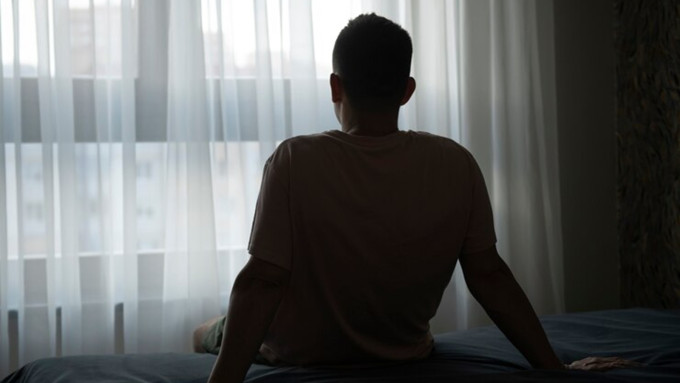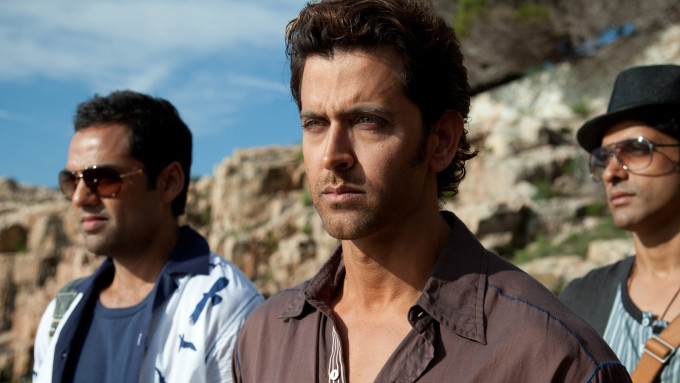‘Indian men are facing a loneliness epidemic and we’re not talking about it enough’
Sex and the City. Veere Di Wedding. Golden Girls. Four More Shots Please! Mean Girls. Little Women. Myriad movies and shows are known and loved for their depiction of the female experience – the way women love, laugh, rage, live, cry, and exist in this world.
But somewhere between Amitabh Bachchan’s Angry Young Man and Rajesh Khanna’s “Pushpa, I hate tears”, a new Indian man was born whose emotional range began with anger and ended with hatred. At least that is what Sarthak Gupta, who is a counselling psychologist at Lissun, a mental health platform, believes. “It was like they were subtly letting us know that anger is the only acceptable emotion for a man,” he says.

According to psychologist Vishnupriya Bhagirath, “Indian men are facing a loneliness epidemic and we are not talking about it enough.”
In its new GenZ Report, surveying over 900 youth across 20+ cities, youth impact organisation Yuvaa found that Gen Z men are twice as likely as women to feel lonely due to their gender; nearly half recognise needing safe spaces to discuss gender roles.
Nikhil Taneja, chief and co-founder of Yuvaa and famous for his Be A Man, Yaar! podcast, explained that this finding has been consistent with what they have heard at the Yuvaa roadshows where they travelled to 150+ campuses and engaged with over 15,000 students. “Young men would talk about the loneliness and lack of positive, nurturing communities they face as they get older,” he told indianexpress.com in an interaction.
For two 24-year-old journalists who have nothing in common except for their age and profession, this loneliness was exacerbated by the pandemic. “The feeling led to me crying and not being able to focus on anything,” said one. The other tried to cope by walking “almost 22 km a day with only music to keep me company”.
They are not alone considering the World Health Organization (WHO) reported a significant increase in loneliness around the world post-pandemic, even declaring it a global threat.
How and why is loneliness in men becoming an issue?
Young men are particularly vulnerable. A 2023 State of American Men report by Equimundo, a non-profit organisation in the US, revealed that two-thirds of surveyed men between 18 and 23 feel as though “no one really knows them”. This loneliness is especially acute for unmarried men: one in five report no close friends, and a grimmer statistic, one in four under-30s say the same.
For 24-year-old Mouviz Khan, social media plays a role in worsening his loneliness. “Everyone seems to have a perfect life and as much as you tell yourself it is not entirely true, you do still end up feeling left out and lonely,” he says.
 A 2020 BBC loneliness experiment involving men aged 16-99 from 237 countries found that young men in individualistic cultures, where self-reliance reigns supreme and social bonds are looser, were the loneliest. (Source: Freepik)
A 2020 BBC loneliness experiment involving men aged 16-99 from 237 countries found that young men in individualistic cultures, where self-reliance reigns supreme and social bonds are looser, were the loneliest. (Source: Freepik)
A 2019 YouGov poll concluded that one in five men in the UK has no close friends, twice the rate of women. Across the pond, a 2021 Survey Center on American Life study found a more alarming trend: since 1995, the number of men reporting a lack of close friends has quintupled, rising from 3 per cent to 15 per cent. In the same research, the proportion of men claiming at least six close friends halved, from 55 per cent to a meagre 27 per cent.
Karan Cheema remembers feeling lonely as early as when he was in the first grade but he has not yet been able to open up to anyone. Cheema is 26 now. “I have friends but I am afraid to be vulnerable with them. I am surrounded by people, but I don’t feel as if I belong. The more frequently I meet people, the lonelier I feel,” he says.
Sociology expert Pranay Aggarwal, who serves as India’s representative in UNESCO’s International Sociological Association, thinks it is ironic that the main reason why Indian men are reluctant to talk about loneliness is patriarchy, bearing in mind that they also benefit from it.
Traditional gender norms make it so that men fall under the pressure of projecting an image of themselves, which appears strong, macho, and independent. To the point of being unemotional, clinical even, says Aggarwal. “And there is a particular reluctance to seek support when it comes to this issue. It is seen as feminine to be expressing yourself, to be too creative, to be too emotional. Like that old cliched patriarchal adage – boys don’t cry. So there is a strong societal disapproval of any expression of emotion and any admission of vulnerability,” he says.
Nikhil Taneja agrees, saying that young men are as burdened by patriarchy as women since they are expected to take the role of the provider and work towards it from a young age, even in the modern world. “There are few safe spaces they find that allow them non-judgemental expression about what they are going through,” he says.
Aggarwal notes that if somebody does admit to feeling lonely or some sort of a vulnerability, it is seen as a sign of weakness. “If you risk talking about it to your friends, family, you may be mocked as a sissy or somewhat less of a man,” he adds.
 Traditional gender norms make it so that men fall under the pressure of projecting an image of themselves, which appears strong, macho, and independent.(Source: A still from Zindagi Na Milegi Dobara)
Traditional gender norms make it so that men fall under the pressure of projecting an image of themselves, which appears strong, macho, and independent.(Source: A still from Zindagi Na Milegi Dobara)
Cultural factors also seem to play a role. A 2020 BBC loneliness experiment involving men aged 16-99 from 237 countries found that young men in individualistic cultures, where self-reliance reigns supreme and social bonds are looser, were the loneliest.
Khan says he is extremely attached to his family and moving to a different city for work hit him in more ways than one, making him lonelier than ever.
With family structures changing, more and more nuclear families are mushrooming as people move to metros with greater geographical and social mobility and rising material aspirations. According to Aggarwal, who also mentors young men and women studying for the UPSC exam, this has created an erosion of a support system one could fall back on. The cocktail becomes particularly potent when you add the pressure to conform to rigid gender norms.
How can men and their loved ones help?
All the men who contributed to this story confessed to needing help but not being able to ask for it.
As per the 2022 statistics of the National Crimes Record Bureau, the number of men who died by suicide in India was more than double the number of women. This is a consistent trend.
The first rung of support must come from loved ones, says psychologist Bhagirath. “Validate their feelings, encourage them to communicate openly, avoid dismissing their feelings, help them create social connections and engagements,” Bhagirath adds.
“I personally find it somewhat unfortunate that many students, especially young boys, though they share their feelings with me, are hesitant to share them even with their parents, particularly their fathers,” says Aggarwal, who is a mentor to students.
View this post on Instagram
A post shared by Pooja B (@poojab1972)
Of course, families and society must challenge the traditional stereotypes and rigid gender norms. But when it comes to providing care on an individual level, it might be a mistake, said counselling psychologist Gupta.
“Challenging belief systems is essential on a societal level, but on an individual level, it can push a man further into his shell. Instead, the best thing that we can do to help out men suffering from loneliness is to make sure to let them know that we are available to them. Reinforce this idea until they feel comfortable enough to approach you themselves and share their feelings of isolation. Any new ideas or thoughts should be introduced only after building this rapport,” he told indianexpress.com in an interaction.
The silence surrounding male loneliness in India is deafening, yet its consequences are profound. It ripples through lives, eroding mental well-being, straining relationships, and potentially leaving men more vulnerable to harmful coping mechanisms. But acknowledging this issue is not a sign of weakness; it’s a sign of strength, a recognition that men, too, need connection and support.
Who says the definition of what it means to be a man has to be written in stone? You can write your own definition.
Disclaimer: The copyright of this article belongs to the original author. Reposting this article is solely for the purpose of information dissemination and does not constitute any investment advice. If there is any infringement, please contact us immediately. We will make corrections or deletions as necessary. Thank you.





